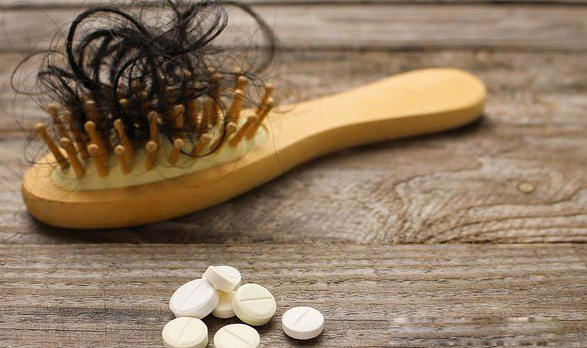Categorie
- Blog (60)
La melatonina è un ormone prodotto dal cervello noto per il suo ruolo nel ciclo sonno-veglia. I supplementi di questo ormone sono comunemente usati dalle persone con insonnia, disritmia, e problemi di sonno legati al lavoro a turni.
Anche le applicazioni topiche di questo ormone sono allo studio per uno scopo non correlato – per curare la caduta dei capelli. Mentre sono necessarie ulteriori ricerche, I dati preliminari suggeriscono che la melatonina può beneficiare della crescita dei capelli.
Ormoni come l'adrenalina, testosterone, Diidrotestosterone (Dht), ed enzimi come 5-alfa reduttasi vengono monitorati e regolati durante il ciclo del sonno quando viene generata la melatonina. Troppo poca melatonina può consentire a questi di andare fuori equilibrio e ciò può provocare un diradamento dei capelli.

La crescita dei capelli avviene all'interno del follicolo pilifero e il suo ciclo di crescita è costituito da 3 fasi. In sano, cuoio capelluto peloso, La maggior parte dei follicoli piliferi è nella fase di Anagen, o la fase attiva della crescita dei capelli. Le ciocche di capelli in questa fase di solito non cadono, E più a lungo i capelli rimangono in questa fase, Più lungo e più veloce crescerà.
Questa fase di Anagen può durare per diversi anni, dopo di che la crescita dei capelli si ferma e il follicolo entra in una breve fase di transizione, o fase primaria. Prossimo, I capelli entrano in un breve periodo dormiente, il periodo dormiente. A questo punto, L'albero dei capelli cade e i capelli nuovi iniziano a crescere nel follicolo.

La crescita dei capelli è regolata da ormoni chiamati androgeni, e una maggiore attività di questi ormoni accorcia la fase di Anagen della crescita dei capelli, portando alla calvizie maschile o femminile.
Questo è ciò che fa la melatonina. I follicoli piliferi contengono recettori della melatonina, e attraverso l'azione chimica, La melanina può contrastare gli effetti degli androgeni, prolungando così la crescita dei capelli, Aumentare la produzione di capelli, e prevenire la caduta dei capelli.
Melatonina è anche un potente antiossidante che potrebbe teoricamente proteggere il cuoio capelluto e i follicoli piliferi dall'infiammazione e dal danno tissutale che possono portare alla perdita di capelli.
Uno studio ampiamente citato sulla melatonina come terapia di crescita dei capelli è stato pubblicato nel febbraio 2004 Numero del British Journal of Dermatology. Il piccolo studio ha chiesto 40 donne con perdita di capelli per applicare un 0.1% melatonina o soluzione placebo al loro cuoio capelluto ogni giorno per 6 mesi.
Alla fine del periodo di studio, Le donne che hanno usato la soluzione di melatonina avevano una percentuale più elevata di capelli del cuoio capelluto nella fase di crescita anagen o attiva rispetto alle donne che hanno usato il placebo. Mentre questi risultati sono promettenti, Sono necessarie ulteriori ricerche per confermare questi risultati e garantire che anche studi più ampi trovino efficacemente la melatonina.
In particolare, I ricercatori in questo studio hanno riportato un aumento dei livelli ematici di melatonina sul cuoio capelluto delle donne che hanno usato la soluzione di melatonina, ma non più alto del corpo normalmente produce. Ciò sottolinea l'importanza della ricerca per determinare un uso topico sicuro.
La stragrande maggioranza dei prodotti di melatonina sul mercato viene presa per via orale, e questi integratori non sono stati studiati per il trattamento della perdita di capelli. Prendere la melatonina per bocca può causare effetti collaterali, comprese le vertigini, mal di testa, sonnolenza, o nausea.
La melatonina non è stata testata in gravidanza, Donne o bambini infermieristici, Secondo il National Institutes of Health. Parla con il proprio medico prima di utilizzare qualsiasi integratori, Soprattutto se hai condizioni mediche o prendi farmaci da prescrizione. Per il trattamento professionale della perdita di capelli, e per conoscere la sicurezza e l'efficacia dei trattamenti per la perdita di capelli, Consultare un dermatologo.
Benvenuti a inviarci un'indagine sulla nostra polvere di melatonina per la crescita dei capelli a [email protected].